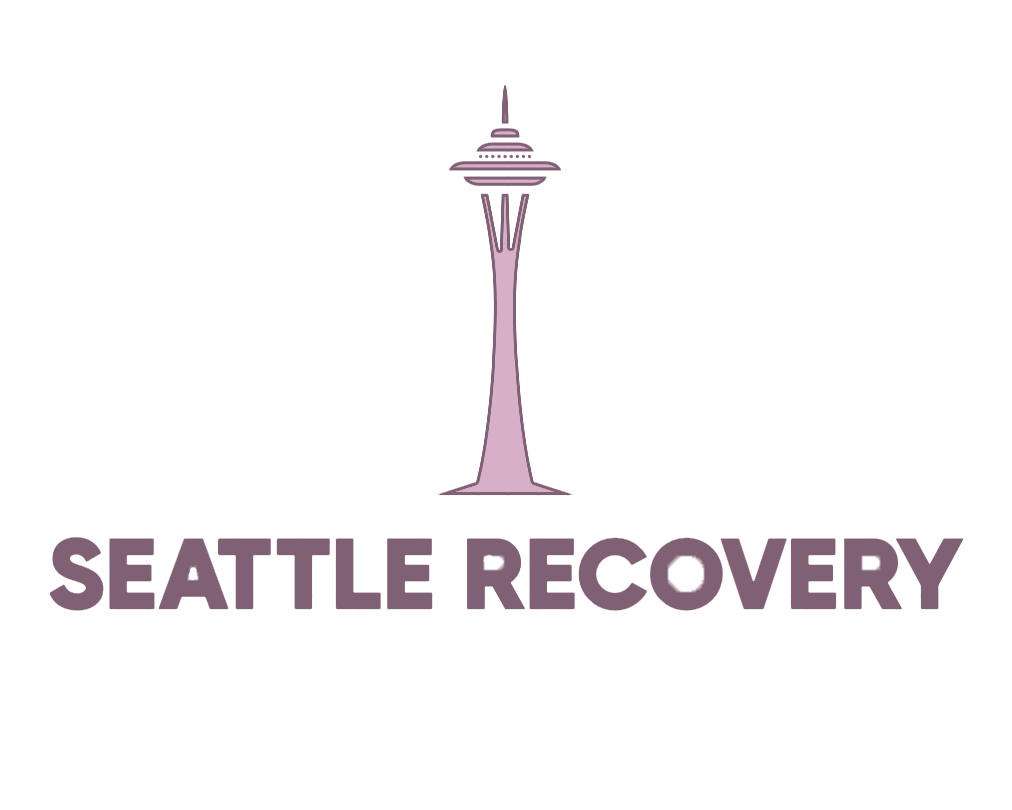Treatment Centers in Seattle Washington
Finding the right support when facing mental health challenges or substance abuse issues can feel overwhelming. For residents throughout the Pacific Northwest, treatment centers Seattle Washington offer comprehensive, evidence-based care designed to help individuals reclaim their lives and build lasting recovery. Whether you’re seeking help for yourself or supporting a loved one through their journey, understanding the available treatment options is the first step toward meaningful, sustainable change. Seattle’s unique position as a major metropolitan area means residents have access to some of the region’s most advanced behavioral health resources. Treatment centers Seattle Washington provide specialized programs that address the complex relationship between mental health disorders and substance use, recognizing that effective care must treat the whole person rather than isolated symptoms.
Understanding the Spectrum of Care
The path to recovery looks different for everyone, which is why treatment centers Seattle Washington offer multiple levels of care tailored to individual needs. From the initial stages of withdrawal management through long-term aftercare support, comprehensive treatment facilities provide a continuum of services designed to meet people exactly where they are in their recovery journey. Choosing between various treatment options requires careful consideration of several factors, including the severity of symptoms, the presence of co-occurring disorders, personal responsibilities like work or family, and previous treatment history. Many individuals benefit from starting with more intensive services before gradually transitioning to less restrictive levels of care as they develop stronger coping skills and support networks.
Detoxification and Intervention Assistance
For many individuals struggling with substance dependence, the first critical step involves safely managing withdrawal symptoms. Treatment centers Seattle Washington that offer medical detoxification provide 24-hour monitoring and support during this vulnerable phase. Medical professionals can administer medications to ease discomfort, monitor vital signs, and address any complications that arise during the detox process. Key benefits of professional detoxification services include:
- Medical supervision that ensures safety during withdrawal from alcohol, opioids, benzodiazepines, and other substances
- Medication-assisted treatment to reduce cravings and minimize withdrawal discomfort
- Immediate access to emergency medical care if complications develop
- Nutritional support and hydration management to help the body heal
- Emotional support from trained staff who understand the challenges of early recovery
- Seamless transition planning to ensure individuals move directly into ongoing treatment rather than returning to substance use
Intervention assistance represents another crucial service offered by treatment centers Seattle Washington. Professional interventionists work with families to plan and conduct structured conversations that encourage loved ones to accept help. These carefully orchestrated interventions increase the likelihood that individuals will agree to enter treatment, while also setting healthy boundaries that support long-term recovery for the entire family system.
Inpatient and Outpatient Treatment Options
Once the immediate crisis of withdrawal has been addressed, individuals can choose between inpatient and outpatient treatment structures based on their specific circumstances and clinical needs. Inpatient treatment programs provide:
- A structured, substance-free environment that removes individuals from triggering situations and relationships
- Round-the-clock access to medical and mental health professionals
- Intensive therapy sessions that may include individual counseling, group therapy, and family sessions
- Peer support from others who are navigating similar challenges
- A break from daily stressors that allows individuals to focus entirely on their healing
- Comprehensive assessment and treatment for co-occurring mental health conditions
Outpatient treatment offers:
- Flexibility that allows individuals to maintain work, school, or family responsibilities while receiving care
- Regular therapy sessions ranging from a few hours per week to several hours per day
- The opportunity to immediately practice new coping skills in real-world situations
- Lower costs compared to residential programs
- Continued connection to existing support systems including family, friends, and community resources
- Extended treatment duration that allows for gradual progress and skill development
Many treatment centers Seattle Washington recommend that individuals with severe substance use disorders, significant mental health symptoms, or unstable living situations begin with inpatient care before transitioning to outpatient services as they stabilize.
Partial Hospitalization Programs and Residential Treatment
Between traditional inpatient and outpatient care lies a spectrum of intermediate options that provide varying levels of structure and support. Partial Hospitalization Programs (PHP) deliver intensive treatment while allowing individuals to return home each evening:
- Structured programming typically runs five to six days per week for six or more hours daily
- Comprehensive services including individual therapy, group counseling, medication management, and skills training
- Close monitoring of mental health symptoms and substance use triggers
- Medical oversight without the need for 24-hour residential care
- A step-down option for individuals transitioning from inpatient treatment or a step-up for those who need more support than traditional outpatient care provides
Residential treatment programs offered by treatment centers Seattle Washington create therapeutic communities where individuals live together while receiving intensive care:
- Extended stays ranging from 30 days to several months allow for deep personal work and lasting behavioral change
- Immersive therapeutic environments where every aspect of daily life becomes part of the healing process
- Life skills training that prepares individuals for independent living and successful reintegration into their communities
- Peer support that helps individuals feel less isolated in their struggles
- Time and space to address underlying trauma, relationship patterns, and core beliefs that contribute to substance use and mental health symptoms
These intermediate levels of care serve as vital bridges, helping individuals develop the skills and confidence they need to maintain recovery when returning to their everyday lives.
Evidence-Based Therapeutic Approaches
Treatment centers Seattle Washington employ a range of proven therapeutic modalities, each targeting different aspects of mental health and addiction recovery. Eye Movement Desensitization and Reprocessing (EMDR) helps individuals process traumatic memories that often fuel substance use and mental health symptoms:
- Bilateral stimulation through guided eye movements, tones, or taps helps the brain reprocess disturbing experiences
- Particularly effective for treating PTSD, anxiety disorders, and trauma-related substance use
- Reduces the emotional intensity associated with traumatic memories without requiring detailed verbal recounting
- Often produces faster results than traditional talk therapy for trauma-related conditions
Cognitive Behavioral Therapy (CBT) addresses the connection between thoughts, feelings, and behaviors:
- Helps individuals identify negative thought patterns that contribute to depression, anxiety, and substance use
- Teaches practical skills for challenging distorted thinking and developing healthier perspectives
- Provides structured homework assignments that reinforce new patterns outside of therapy sessions
- Proven effective for treating depression, anxiety disorders, PTSD, and substance use disorders
Dialectical Behavior Therapy (DBT) combines acceptance and change strategies:
- Particularly effective for individuals who struggle with emotional regulation, self-destructive behaviors, and relationship difficulties
- Four skill modules address mindfulness, distress tolerance, emotion regulation, and interpersonal effectiveness
- Group skills training combined with individual therapy provides comprehensive support
- Originally developed for borderline personality disorder but now widely used for various mental health and substance use conditions
Skill Development and Personal Growth
Recovery involves more than abstaining from substances or managing symptoms—it requires building a life worth living. Treatment centers Seattle Washington recognize this reality and incorporate practical skill development into comprehensive treatment programs. Life skills training addresses practical challenges that individuals often face:
- Financial management including budgeting, banking, and planning for financial stability
- Employment skills such as resume writing, interview preparation, and workplace communication
- Household management including cooking, cleaning, and maintaining a healthy living environment
- Time management and organizational skills that reduce stress and increase productivity
- Health and wellness practices including nutrition, exercise, and sleep hygiene
Motivational interviewing represents a collaborative counseling approach that:
- Explores ambivalence about change rather than confronting denial
- Helps individuals identify their own reasons for pursuing recovery
- Strengthens personal motivation by connecting treatment goals to deeply held values
- Increases engagement and reduces dropout rates by respecting individual autonomy
- Particularly effective during early treatment stages when commitment may be uncertain

Medical Support and Mentoring
Comprehensive care addresses both the biological and social aspects of recovery. Medication management services provided by treatment centers Seattle Washington include:
- Psychiatric evaluation to determine appropriate medications for co-occurring mental health conditions
- Medication-assisted treatment for opioid or alcohol use disorders using medications like buprenorphine, naltrexone, or disulfiram
- Ongoing monitoring to assess effectiveness, adjust dosages, and manage side effects
- Education about how medications work and the importance of adherence
- Coordination with primary care providers to ensure integrated healthcare
Mentoring programs connect individuals with peers who have successfully navigated recovery:
- Role models who demonstrate that long-term recovery is possible
- Practical guidance based on lived experience rather than theoretical knowledge
- Accountability and encouragement during challenging moments
- Help navigating community resources, twelve-step meetings, and recovery support services
- A sense of hope that comes from seeing others who have overcome similar struggles
Understanding Co-Occurring Disorders
One of the most important considerations when selecting from treatment centers Seattle Washington is finding a facility equipped to address co-occurring disorders. Research consistently shows that mental health conditions and substance use disorders frequently appear together, with each condition influencing and exacerbating the other. Depression may lead someone to self-medicate with alcohol, while chronic substance use can trigger or worsen anxiety symptoms. Without addressing both conditions simultaneously, individuals face significantly higher relapse rates and poorer long-term outcomes. Integrated treatment approaches recognize these complex relationships and provide coordinated care that addresses all presenting concerns. Rather than treating mental health and substance use in isolation, treatment centers Seattle Washington with co-occurring disorder programs ensure that the same clinical team develops a unified treatment plan. This coordination prevents conflicting treatment recommendations, reduces the burden on individuals to navigate multiple systems, and increases the likelihood of sustained recovery. Dual diagnosis treatment requires specialized training and expertise. Clinicians must understand how psychiatric medications interact with substance use, how withdrawal symptoms can mimic or mask mental health conditions, and how to sequence interventions for maximum effectiveness. When evaluating treatment centers Seattle Washington, ask specifically about their experience and protocols for treating co-occurring conditions that match your situation.
Making Your Decision
Choosing among treatment centers Seattle Washington requires careful consideration of multiple factors. Look for facilities that are properly licensed and accredited, offer evidence-based treatment approaches, employ qualified and compassionate staff, and provide comprehensive assessments that identify all co-occurring conditions. The best treatment centers create individualized treatment plans rather than using one-size-fits-all approaches, involve families in the recovery process when appropriate, and offer robust aftercare planning to support long-term success. Don’t hesitate to tour facilities, ask questions about their treatment philosophy and success rates, and speak with alumni who have completed their programs. Many treatment centers Seattle Washington offer free assessments and will work with you to determine the most appropriate level of care based on your unique circumstances.
The Seattle Advantage
The Seattle metropolitan area offers unique advantages for those seeking behavioral health treatment. The region’s strong healthcare infrastructure, progressive treatment philosophies, and commitment to evidence-based care mean that individuals have access to cutting-edge interventions often unavailable in smaller communities. Additionally, Seattle’s natural beauty—from Puget Sound to the Cascade Mountains—provides therapeutic environments that support healing and reflection.
Conclusion
Reaching out for help represents an act of courage and self-compassion. Whether you’re struggling with substance use, mental health challenges, or both, treatment centers Seattle Washington stand ready to provide the comprehensive, individualized care you need to build a healthier, more fulfilling life. Recovery is not only possible—with the right support, it’s probable. The evidence-based treatments, compassionate professionals, and comprehensive services available throughout Seattle provide a strong foundation for lasting change. By taking that first step and reaching out for an assessment, you’re choosing hope, healing, and the possibility of a brighter future for yourself or your loved one. Call us at 1 (206) 231-0252 or visit our website to start your journey to wellness today. Compassionate professionals are awaiting your inquires!







